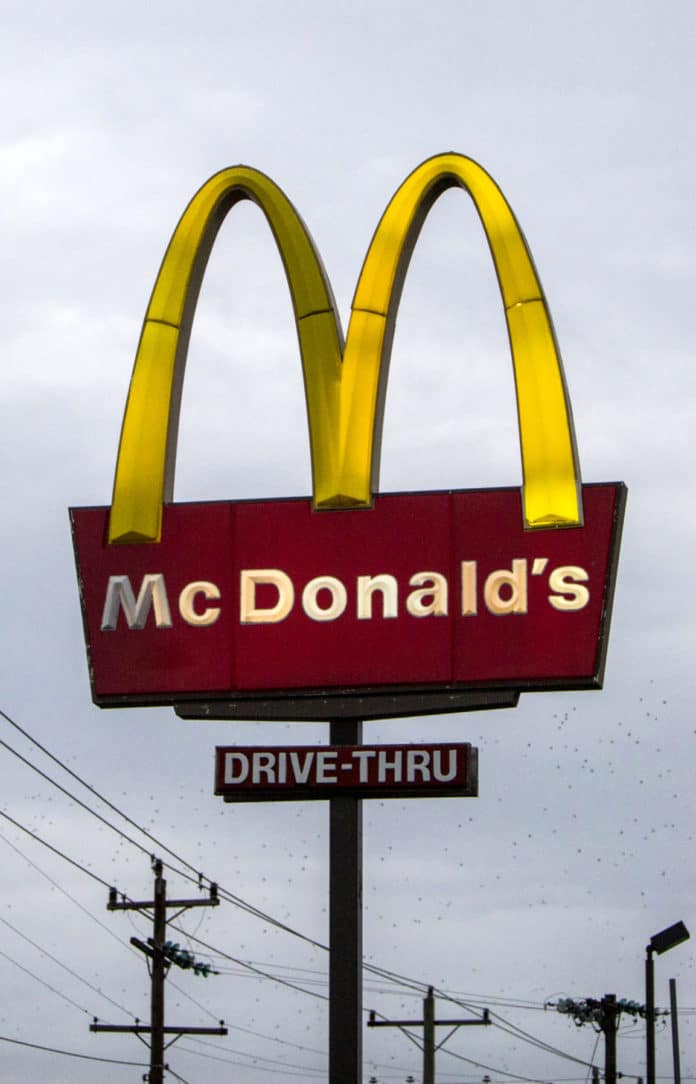NEW YORK (AP) — The company behind the golden arches wants to get greener.
McDonald’s said Tuesday it’s taking steps to cut the greenhouse gases it emits, including tweaking the way the beef in its Big Macs and Quarter Pounders is produced.
The world’s largest burger chain said it expects the changes to prevent 150 million metric tons (165 million tons) of greenhouse gas emissions from being released into the atmosphere by 2030, equal to taking 32 million cars off the road for a year.
Several food and beverage companies have announced changes recently to appeal to customers concerned about the environment. Dunkin’ Donuts has said it will stop using foam coffee cups by 2020. And soda maker Coca-Cola announced plans to recycle a bottle or can for every beverage it sells by 2030.
“We’re taking action we care about and customers really appreciate,” said McDonald’s Corp. CEO Steve Easterbrook.
The company said three areas — beef production, energy use at its restaurants and packaging — account for more than 60 percent of its emissions, and it will make changes there first.
To reduce emissions at cattle farms, suppliers are testing a new way to feed cattle: moving animals from pen to pen, so the soil the cows stand on as they eat grass has a chance to recover. Healthier soil can better absorb carbon, the company said, meaning less of it will end up in the air.
At its 40,000 restaurants around the world, McDonald’s said it is working with franchisees to replace light bulbs and kitchen appliances with more energy-efficient ones. It is also in the process of using more environmentally friendly materials for its soda cups, Happy Meal boxes and burger wrappers, a shift it announced last month.
Because of the company’s size, changes made by McDonald’s could have a ripple effect across the industry, said Sheila Bonini, a senior vice president at the World Wildlife Fund, which worked with McDonald’s to make its changes. McDonald’s beef suppliers, for example, likely sell beef to other restaurant chains.
Altogether, McDonald’s expects to cut its greenhouse gas emissions by nearly 40 percent by 2030 from 2015 levels.
The Oak Brook, Illinois-based company declined to say how much it will spend to make the changes.






